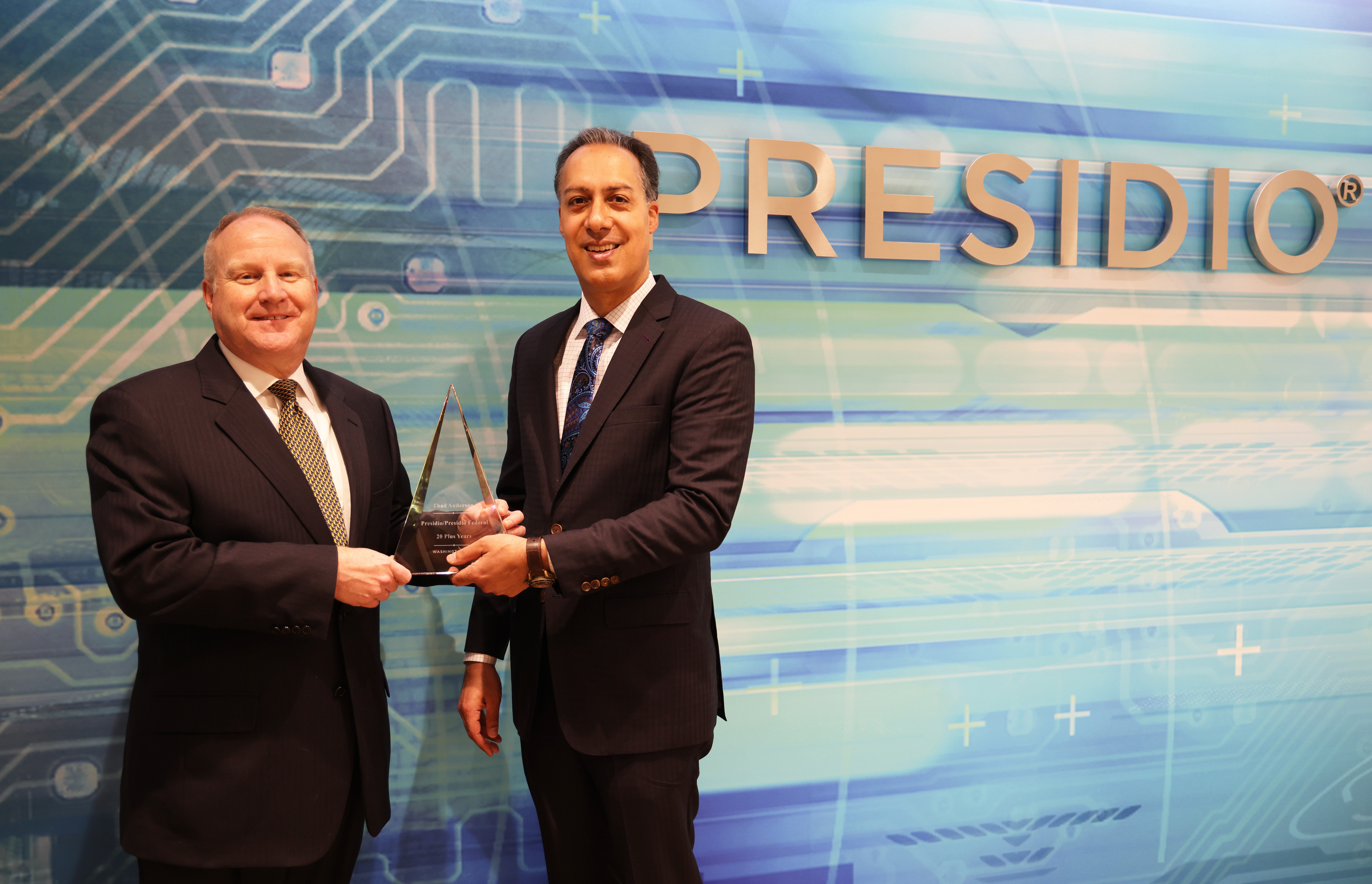
WashingtonExec has awarded Presidio Federal General Manager Thad Anderson with the Longevity Award, which recognizes executives who made outstanding contributions to their companies throughout the years.
Anderson has been with Presidio for 21 years. Below, he shares how he got started with the company, the impact he’s made, mentorship moments and more.
Why did you join in the first place?
My brother joined Presidio in 2000, so I was aware of the company. When I was looking around for my next opportunity, he mentioned an opening for someone to run their nascent professional services business. My background at the time was entirely in consulting and project management. I had lunch with the president, and it seemed like a good fit.
What made you stay?
The people. It sounds cliché, but I really enjoy working with team. Presidio has grown tremendously in the time I’ve been here and that has almost continually brought new people in with fresh perspectives. I get my greatest sense of accomplishment from mentoring and developing younger talent. Presidio’s growth has continually created new professional opportunities for me. I’ve never felt stuck from a career development perspective.
What’s the best part about staying with a company for as long as you have?
Beside the relationships, I think the best part is having the institutional knowledge to understand why certain processes are in place. The longer you’re with a company, the more you must guard against “that’s the way we’ve always done it” syndrome. That said, understanding the history of a process helps inform decisions about changes to ensure you achieve the efficiency you’re looking for.
What are some myths you’ve come across relating to long tenures in organizations?
One myth is long tenure breeds complacency. Of course, myths are rooted in reality to some extent, but I think if you’re willing to challenge processes, change organization structures and invite input from others, you can balance stability with the need to evolve.
How have you changed as a professional from your first years to today?
I’m more open with colleagues. I think I was conservative about sharing my thoughts and motivations with peers, subordinates and supervisors early in my career. I’ve come to appreciate more, rather than less, transparency and the importance of explaining the ‘why’ as opposed to just the “what” and “when.” I also put trust higher on my list of priorities.
What’s the most significant impact you’ve had on your company?
I’ve planned and executed several large organizational changes involving hundreds of employees over my career at Presidio. Most of these changes were necessary because of the tremendous growth and the need to scale efficiently along the way. Organizational changes are always delicate maneuvers that require thoughtfulness and good communication. I believe I’ve demonstrated the ability to visualize a new structure, weigh the costs and benefits and articulate the rationale. I’ve also been willing to fail fast when a change did not achieve the intended results.
What do you wish you could tell your younger self in that first year?
Don’t be afraid to make a decision. You’re never going to have all the information and at some point, not acting is more harmful than being wrong. I would also tell myself “The answer is not on the screen.” Data is important, but it’s not helpful without context. Data will not give you the solution to a problem, it only tells you where to look. You’ve got to get out and talk to customers, partners, and your own team.
How do you share your institutional knowledge?
I have a very open-door policy with everyone in the organization. I like to think of myself as approachable and it affords a lot of opportunities to share my accumulated experience. Of course, very rarely are circumstances the same from decision-point to decision-point, so experience is often just a guide. How institutional knowledge is applied makes all the difference.
What has been your most significant mentorship moment?
It’s hard to pick just one, but I always enjoy when someone calls me up for guidance and they typically start by providing background and talk through the problem and all-of-the-sudden they’ll say, “I think I know what to do” without me saying a word other than asking a couple questions. I like to think that’s the tipping point at which they go from student to master.
WashingtonExec is honored to present this award to Anderson to celebrate his decades of career excellence. Congratulations, Thad!

